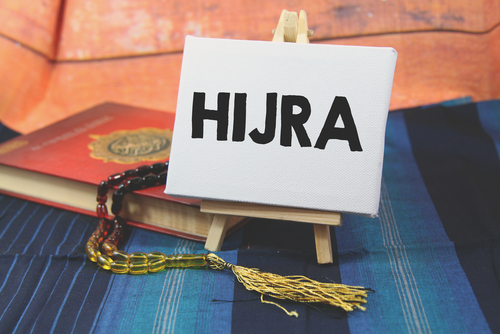
Hijrah simply means ‘Migration’. It is specifically referred to the migration of Prophet Muhammad (S.A.W) and his followers from the city of Makkah to the city of Madinah in the year 622A.D. Hijrah occurred when the persecution of the people of Makkah against the Muslims became intense and Allah commanded the Muslims to migrate.
However, Hijrah encompasses broader themes and principles that are important in the Islamic faith. The following would describe some key meanings and significance of Hijrah.
Obedience to Allah: Hijrah was a commandment from Allah to Prophet Muhammad (S.A.W) and this symbolizes the obedience and submission to the will of Allah. As a Muslim, we should believe that the Prophet’s migration was divinely guided by Allah and it is a crucial step in establishing the Islamic faith.
“As for those who emigrated in ˹the cause of˺ Allah after being persecuted, We will surely bless them with a good home in this world. But the reward of the Hereafter is far better, if only they knew. It is˺ they who have patiently endured, and in their Lord they put their trust.” Surah Nahl 41-42
Preservation and Propagation of Islam: Hijrah marked a pivotal moment in Islamic history. It provided the Muslim community with a safe haven in Madinah, giving them the opportunity to practice their faith freely and establish a society based on Islamic principles. This migration also facilitated the spread of Islam, as the message of the Prophet (S.A.W) reached a wider audience in Madinah and beyond.
Unity and Brotherhood: Hijrah to Madinah resulted in the establishment of a strong community of Muslims amongst the Ansar (helpers) and the Muhajirun (migrants). This event emphasized the importance of solidarity and unity among Muslims, regardless of their tribal or ethnic backgrounds. The bonds formed during Hijrah laid the foundation for a cohesive Muslim society based on brotherhood and mutual support.
Striving for a Better Life: Hijrah exemplifies the concept of seeking a better life for the sake of one’s faith. The Muslims faced persecution and hardship in Makkah, yet they willingly left their homes and possessions to escape oppression and establish a just society in Madinah. This serves as an inspiration for Muslims to strive for a better life.
Hijrah as a Personal Journey: On individual level, Hijrah can also be understood as a spiritual and personal journey of self-improvement and distancing oneself from negative influence.
Overall, Hijrah holds significant historical, spiritual, and moral importance in Islam. It serves as a reminder of the importance of obedience to Allah, preservation and propagation of Islam, unity and brotherhood, striving for a better life, and personal growth and transformation.
Jazakumullahu khayran for reading our post, we hope you find it beneficial.
Curated by Haleema, Posted by Olatunji Idayat





